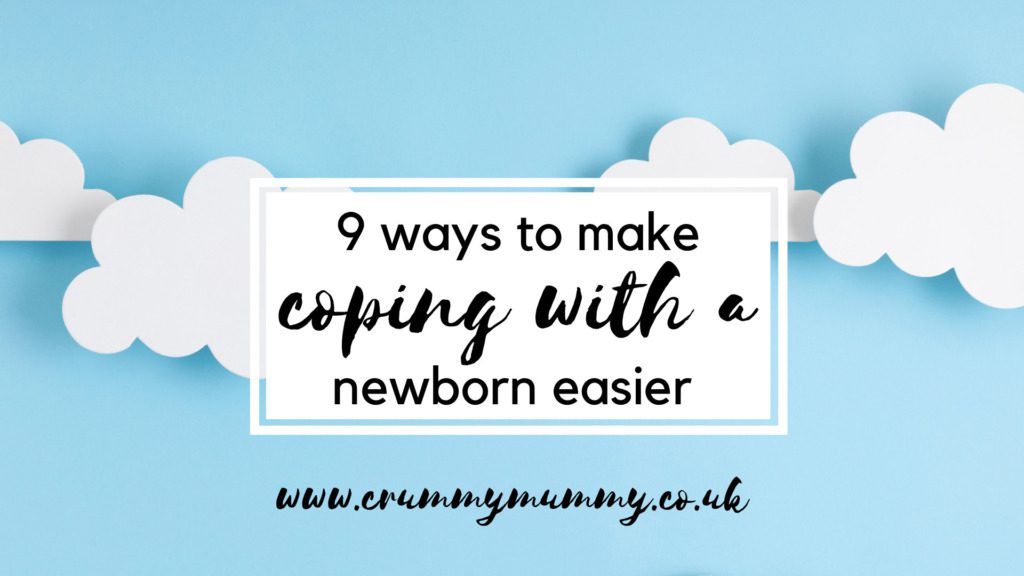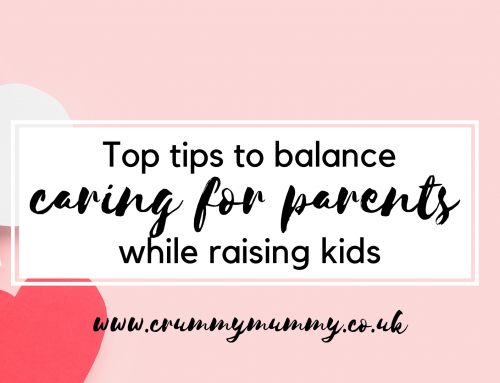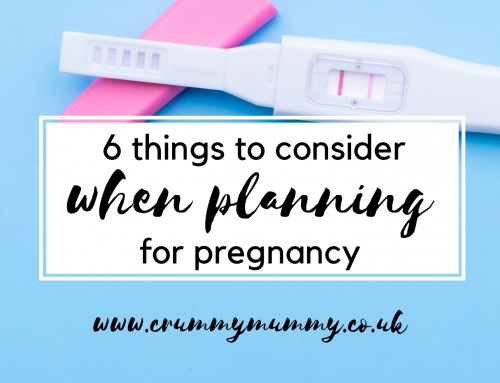Welcoming a new baby is an exciting and wonderful time in life.
However, coping with a newborn can also be challenging. The first few days and weeks with a new baby can feel like chaos as you’re adjusting to this new little person in your life.

Having a new baby in the house will change everything about your life – and I should know, because I’ve had four of them! There’s a lot to adjust to, which happens almost immediately – from feeding and changing nappies to napping and play time.
This post may contain affiliate links. This means if you buy something after clicking on a link, I’ll earn a few pennies to help me keep creating posts like this, at no extra cost to you!
Most parenting experts agree that these first few weeks are crucial for establishing routines to make coping with a newborn easier. So, how can you make coping with a newborn as easy as it can be? This collaborative post reveals all!
9 ways to make coping with a newborn easier
1. Sleep when you can
You may not get much sleep in the early weeks, which can lead to exhaustion and a reduced ability to cope effectively with all of the challenges of new parenthood. You and your partner will need to get as much rest as possible so that you have the energy to care for your baby and each other. Infants need a lot of care each day, so try to time your sleep so that you have enough hours to get everything done. Naps are also a great way to recharge both you and your partner. If you’ve been sleep-deprived for a while, you might find it helpful to get some extra assistance. There are many different sleep training methods, so find one that will work for your baby’s sleep patterns and remember that it will take time for everyone to adjust to the new sleeping situation. Sleep training is popular for many new parents, and finding tips for sleep training your newborn can help babies (and parents) learn to fall asleep and stay asleep without assistance.
2. Accept help
New parenthood is challenging at best, but it can be even more difficult for parents who find themselves in new, unexpected situations and scenarios unfamiliar to them. For example, one in 400 children in the UK is diagnosed with Cerebral Palsy, and in some extreme cases legal action such as cerebral palsy negligence claims may be necessary. You may not know anyone who has gone through this before, and it can make settling into parenthood more difficult. In situations like these, it is important to accept help and support from others. Family and friends will have valuable insight and advice that you can use to help you navigate the early days of parenthood. It can also be good to seek out support groups and forums where people with similar situations can share their experiences and advice.
View this post on Instagram
3. Prioritise the most important things
As a new parent, getting caught up in the details of your newborn’s life can be stressful. Keeping track of feeding times, nappy changes, naps, and everything else that comes with having a new baby can take its toll. At first, you need to prioritise what you do and don’t need to do. Lowering your standards regarding cleaning the house, reducing time spent socialising or even having your shopping delivered instead of heading to the supermarket can help you make life a little easier on yourself until you find your rhythm.
4. Don’t feel pressured to listen or act on all the advice you are given
New parenthood is full of advice, some of which is useful and some of which is not. Pregnancy and babies can invoke elicit responses from anyone and everyone, especially online. There are many different styles of parenting that are effective, and you must find the one that works best for you and your family. Getting caught up in the idea that you must do everything ‘right’ to be a good parent can be easy. However, it is essential to remember that every parent is different. What works for one family may not work for another, and it is important not to feel pressured to do what everyone else is doing. While it is good to take advice, you also need to know yourself and what works for you and your family. If something does not feel right or like it won’t work for you and your family, it is okay to say no.
5. Try to eat well and often
We often forget to take care of ourselves when we’re new parents. This is usually because you’re so busy taking care of your baby and managing the household that you forget to take care of yourself. This can lead to reduced immunity, increased stress, and an inability to cope with new parenthood. It may also make bonding with your baby more difficult if you feel run down and tired. It’s easy to eat on the go, skip meals, or try to make do with the bare minimum when it comes to eating. Try to eat well and often – at least two meals a day with healthy snacks in between. And try not to skimp on the nutrients you need: healthy food is a great way to boost your energy and stay fit.
This is even more important for breastfeeding parents. Breastfeeding burns more calories and can be tiring and time-consuming, especially in the first few weeks. You need to eat a well-balanced diet and stay hydrated to give both you and your baby the support and nutrients you need.
6. Remember babies pick up on stress
Babies are very in tune with their parents and the feelings they’re experiencing. If you are feeling stressed, your baby will likely feel that too. If you are struggling to settle your baby or things are getting too much, it can be beneficial for you and your baby to regroup. Place your baby somewhere safe, take a few minutes to grab a glass of water, take a deep breath and calm down before attempting to soothe them again. Alternatively, if you can, allow someone else to take over, calming the baby down or feeding them to allow you the chance to relax and reduce your stress levels.
7. Confide in people you trust
New parenthood often comes with challenges that you may not feel comfortable talking to your partner about. This is okay! Many parenthood challenges are very individual, and it can be helpful to talk to someone who will listen without judging you or making you feel like you’re not doing things ‘right’. It can be beneficial to speak to a friend or family member who is familiar with parenthood and the challenges it can come with. If you don’t feel like you want to talk to someone you know, there are many online forums and chat rooms where new and experienced parents can come together to share advice and support.
8. Find a routine that works for you & your baby
As your baby grows, it is essential to establish a routine that works for them and you. This will make their lives easier and better for everyone involved. Having a routine can also help you keep cool when things get hectic. You’ll know when it’s time for feeding, for a nap, and so on. There are many different techniques and ways to create a successful routine. Find one you think will work best for you and your family, and be open to revising it as your baby grows and changes. It is also important to remember that a routine is not the same as a schedule. Routines encourage healthy habits, while schedules control your child’s life and don’t allow for changes in their development. It is usual for babies to run on different schedules and need different things at other times. Try not to compare your routines and life to someone else; appearances can be deceiving, and you may only be seeing what they want you to see.
9. Keep all your midwife & doctor appointments
It can be tempting to cancel or rearrange your appointment, but it is essential that you try to get to these appointments in the first few weeks. Your midwife needs to know your body is returning to normal post-birth, and the health visitor needs to ensure the baby is developing as they should be and that you are both getting the support you need. These professionals help you with any worries or concerns and are your best source of information and help should you need it.
This is a collaborative post.

























Leave A Comment